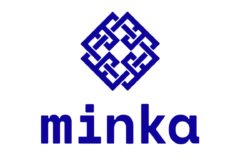
Sudanese fintech company, Bloom, recently announced that they had raised a $6.5 million dollar seed round. The funding round was led by Visa, with participation from Y Combinator, Global Founders Capital (GFC), Goodwater Capital, VentureSouq, angel investors, and professional footballers like Blaise Matuidi and Keiran Gibbs. The company has seen a lot of buzz and admiration since its waitlist went up in March; it had 100,000 people before closing by the end of March.
To gain insight into how they were able to raise this funding round and acquire users in Sudan, TechCabal spoke with Ahmed Ismail, cofounder and CEO of the company. With an educational background in chemical and nuclear engineering from the Imperial College, London, Ismail has worked for finance giants Goldman Sachs and Barclays. After working in several finance departments, he decided to tow the entrepreneurial line in 2018, building a couple of companies with moderate success. In May 2021, he and his co-founders started thinking about building something in Sudan and East Africa. In July of the same year, Bloom was created by Ahmed, Youcef Oudjidane, Khalid Keenan, and Abdigani Diriye.
How did you meet your co-founders?
Youcef used to work at a venture capital called Class 5. We lived in the same building in Dubai a few years ago, and we are very good friends. When we hang out, we always talk about companies and the problems they can solve. We decided that there is a problem in Sudan and that the problem is shared by many other markets in East Africa and beyond.
Khalid, our CTO, went to Imperial with me, where he studied computer science. We also worked at Goldman Sachs together. I was in banking and he was in tech. We’ve done a lot of work together in our spare time in the past, and I’ve always wanted to do something with him. When we decided to build this company, Khalid with his background in financial technology, was perfect for the CTO role.
We all knew Abdigani through mutual friends. We all studied in London at the same time when Abidigani was finishing his master’s and PhD, and we thought he’d be a perfect co-founder and chief product officer.
How were you able to gather so many people on your waitlist in March, seeing as it was only open for a month?
For a couple of reasons, we managed to get 100,000 people. For one, the excitement around bloom stems from the depth of the problem. People are really faced with the problem that we’re trying to solve. We are solving a problem that was top of mind for consumers.
Two, we did a competitive referral-based waitlist. You sign up for the waitlist and, based on the number of referrals you make, you end up on a leaderboard. The top 10 people win high cash prizes, the top 100 win slightly lower cash prizes, and the top 1,000 earn small cash prizes. So, all in all, people were very excited about inviting as many of their friends and family as possible. They could move up the leaderboard and win a higher cash prize, and this allowed the waitlist to become viral.
We also promoted the waitlist through a small number of influencers that speak to the archetype of customers that we’re interested in, which is primarily university students and young professionals. We targeted them on social media as well as the influencer campaigns, which worked really well. It also helped that our brand is very young, very fresh, and very appealing.
How have you been able to move people from the waitlist to become active users?
Our waitlist went up in March, and we got about 100,000 people on it. We’re also going to serve our partner banks’ customers, and that’s another 160,000 people. The total addressable user base is about 260,000 from the waitlist process. We closed the waitlist at the end of March, and we started operating sometime in April.
The people that joined the waitlist are primarily in the addressable segments for us. There’s a lot of interest in the app from the waitlist, and we convert people quite easily from the waitlist. They provide their email address, their mobile number, and their full name. When it’s their turn to get KYC, we send them an email or WhatsApp message and SMS so they learn about the fact that the app is available to them. They complete a very short KYC process and then they are signed up as a customer.
The conversion rate is very high from the waitlist. As of the end of June, we’ve onboarded 20,000–25,000 people, and we’re onboarding more and more people every day.
Your latest seed round was raised for you to scale into other countries. What country will you start with and why this country?
The key problem we solve lies in helping consumers in Sudan receive remittances from family members abroad instantly and at a low cost. Relative to the banks and the traditional remittance companies, we help them receive and hold that remittance in dollars. They can buy local currency on the app, can spend local currency locally, can send money to friends, can pay their bills, etc. It’s a kind of full-fledged digital bank in Sudan.
The problem of bringing remittances into the banking system is quite prevalent in Sudan, and we do this faster than anyone else and in a safer, more secure way. Sudan has a huge economy, and it’s the least invested amongst the major economies in Africa from a VC perspective. For these reasons, we thought that Sudan was the ideal market to launch in and the fact that a lot of the problems that exist are being solved by traditional banks. As we all know, fintechs can be significantly faster and more efficient at solving consumer problems than banks.
The money that we raised is going to be used for scaling in Sudan and expanding to other markets in the region that have similar problems to Sudan, where we have access and an understanding of the market. The first market we’re hoping to launch in is Ethiopia, and we hope to be in Ethiopia before the end of the year. Early next year, we will expand to one or two more markets.
What criteria made you select your investors?
We picked our investors for very specific reasons. We chose GFC, Goodwater Capital, and VentureSouq because they add value beyond just capital, given their deep fintech and consumer tech experience. We chose Visa because having a strong strategic partner’s interests aligned with ours is imperative to moving quickly in driving the adoption of Visa cards and adjacent consumer and merchant products. For the angels and fintechs, we chose them because they will assist us to overcome industry-specific challenges and hurdles. Our football investors will help assist us in our marketing activities by acting as brand ambassadors in future campaigns.
The Sudanese pound, historically, hasn’t been stable. What new features are you willing to add to your product that will help your customers with this devaluation?
Since the Central Bank of Sudan decided to float the pound, it’s been relatively stable, and foreign currency has been flowing into the banking system, but historically, it hasn’t been. People didn’t trust the Sudanese pound, and they didn’t put their deposits in the banking system. Our product allows people to receive their remittances in dollars and buy the Sudanese pound when they want to spend it. The idea is to allow people to hold USD and spend as they go in local currencies.
The other feature that is important is being fully integrated into the local payment network. Interoperability with the local payment systems, which connects the ATMs, the POS, the local cards, and the banks to one another. This means that family members sitting in New York, or in London, or in Dubai, will be able to send money to their son or their daughter or their extended family member. Then that person would receive the remittance instantly, they’ll be able to hold it in dollars, and they’ll be able to spend it when they want in local currency.
Other features that we have in mind are enabling people to save through Bloom, which will, of course, attract more deposits into the banking system. The ultimate objective here is to digitise capital flows into and within Sudan and to attract capital to the banking system.
There wasn’t a lot of historical foreign investment in fintech in Sudan. What brought about the idea of Bloom?
The difference between Sudan and Egypt, or Nigeria and South Africa, for example, is that in the early part of the 2010s, you had a lot of people from the Nigerian diaspora come back to Nigeria and start to build businesses. The boom that Nigeria has had in startup funding and the formation of startups was triggered by the diaspora coming back and doing a lot of great work. Sudan has lacked a similar dynamic. There aren’t many people that have come back to build businesses. We think that it’s important for the diaspora as well as the people living in Sudan to work together to develop a local startup ecosystem. You need a lot of good mechanisms in place for developing talent, training talent, recruitment, and placing good talent in the right roles within startups. These mechanisms don’t exist in Sudan, and we’re working on building them.
The idea came about based on a lot of personal experience, with friends and family members that have struggled with protecting themselves from inflation in Sudan, so it’s quite personal. That’s our biggest motivation—not seeing more friends and family members get hurt by inflation. On the other hand, my grandfather was the first governor of the central bank, and he also started the African Development Bank in Abidjan. I grew up with him and was very close to him. My passion for helping Sudan and building a successful business that serves people in Sudan stems from my relationship with him and the principles that I’ve adopted from him.
How have you been able to measure your impact since your launch?
It’s too soon for us to disclose any operational information; we will disclose more at some point. But for the time being, we’re focused on acquiring as many customers as we can from our waitlist and, more importantly, understanding what experience they’d like to have on the app and optimising it for them. It’s too early for us to discuss any metrics publicly.
Are there any immediate plans for your company?
The focus, of course, is on building a company. We also want to focus on what the Sudanese ecosystem needs. What’s very important for us to convey is that we’re here to help. We have a lot of experience in building products. We have a lot of experience in raising funds, negotiating contracts, partnering with both corporates and banks, etc. We’d like to convey the point that if there are smart, ambitious people looking to build businesses in Sudan, our doors are always open.
They’re welcome to drop by our office and have a chat with any of us for guidance on anything specific about building their business that they’d like guidance on. Of course, we can help them raise money, we can help them with technical problems that they’re facing. We have a very strong network in Sudan and in the region, so we’ll be able to make introductions that help them build their business as well. We think the ecosystem needs a lot of grassroots-level work, and a lot of building blocks, and we’re happy to help in terms of the building block work. We’re working on an initiative to support the ecosystem in Sudan. We haven’t announced anything yet, but we will soon be in a position to announce it.
These are things that we can do that require very little effort and time from us, and that will be beneficial to the ecosystem.




















